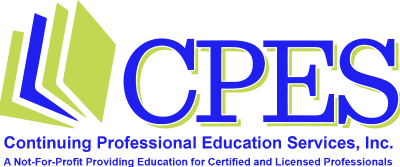Discussion by Dr. Jorge Berkowitz, LSRP, Andy Robins, Esq., Steve Senior, Esq. and Phil Brilliant about the erosion or the perception of the erosion of an LSRPs Professional Judgment by NJDEP and what can be done to protect the LSRP, PRCR and promote a change with NJDEP.
The goal is the protection of public health, safety and the environment.
Safeguarding LSRP Professional Judgment in New Jersey
Highlights from the June 2, 2022 CPES “Hot Topic” Roundtable
On June 2 CPES convened an urgent, one-hour briefing on a theme that sits at the heart of New Jersey’s Site Remediation Reform Act (SRRA): the integrity of an LSRP’s independent professional judgment.
Moderated by Dr. Jorge Berkowitz, LSRP, the panel featured Andy Robins, Esq. (Saul Ewing Arnstein & Lehr), Steven J. Senior, Esq. (Riker Danzig) and Phil Brilliant (Brilliant Environmental/CPES). Together they dissected a growing perception that New Jersey DEP reviews—especially of Remedial Action Permits (RAPs)—are edging back toward prescriptive, “command-and-control” oversight that limits an LSRP’s ability to craft site-specific solutions.
Why the Concern?
- Surging deficiency rates. DEP has cited deficiency rates of 90 percent or more on RAP submissions. To the panel, this signals a systemic review problem, not widespread technical failure by LSRPs.
- Pressure to withdraw filings. Attendees reported cases in which DEP reviewers demanded withdrawal of RAPs or RAOs rather than issuing clear, appealable denials. That tactic sidelines the statutory appeal route and places the LSRP and client in limbo.
- Erosion of flexibility. SRRA and the Technical Rules deliberately left room for professional judgment. Recent experiences—ranging from ecological-risk debates to minor documentation issues—suggest that flexibility is narrowing.
- Brain drain at DEP. The department has lost many of the staff who designed SRRA’s risk-based framework. New reviewers can default to check-box compliance, further squeezing judgment.
Practical Guidance from the Panel
- Document, document, document.
Justification is inseparable from judgment. Provide transparent lines of evidence, reference guidance directly and spell out why a chosen remedy is protective. - Use technical consultations early—before milestone submissions.
Once a document is filed, conversations tend to focus on your process—not the science. - Stand your ground when justified.
SRRA does not compel you to withdraw a key document. If you are certain your submittal is protective, require DEP to take a formal enforcement step. That preserves your appeal rights. - Engage the LSRP Board.
The Board exists to protect the public and the profession. If DEP actions routinely override sound professional judgment, the Board can—and should—address the pattern. - Push for structural fixes.
The panel called for:- A formal SRP advisory council representing LSRPs, PRCRs and environmental counsel.
- Clear internal guidance for DEP reviewers that differentiates administrative checks from technical discretion.
- Renewed training on how professional judgment fits within the Technical Rules and guidance documents.
What CPES Heard from the Audience
Real-time polling during the webinar revealed:
- 50 % of respondents had been asked to withdraw at least one RAP or RAO.
- Review quality varied widely—some reviewers demonstrated strong command of the rules; others did not.
- Even in participants’ “best-case scenarios,” nearly a third reported that DEP reviewers were not comfortable with the LSRP’s professional-judgment authority.
The Road Ahead
SRRA succeeded because it empowered qualified professionals to move sites toward closure without endless regulatory back-and-forth. Thirteen years later, that bargain needs reinforcement. Better reviewer training, transparent appeal paths and regular dialogue between DEP and the regulated community can restore the equilibrium.
Stay Engaged with CPES
CPES will keep convening targeted “Hot Topic” sessions to surface emerging challenges—and solutions—facing New Jersey’s remediation community. If you want to:

- Stay ahead of rule changes and DEP policy shifts,
- Earn timely continuing-education credits, and
- Contribute your voice to constructive reform,
